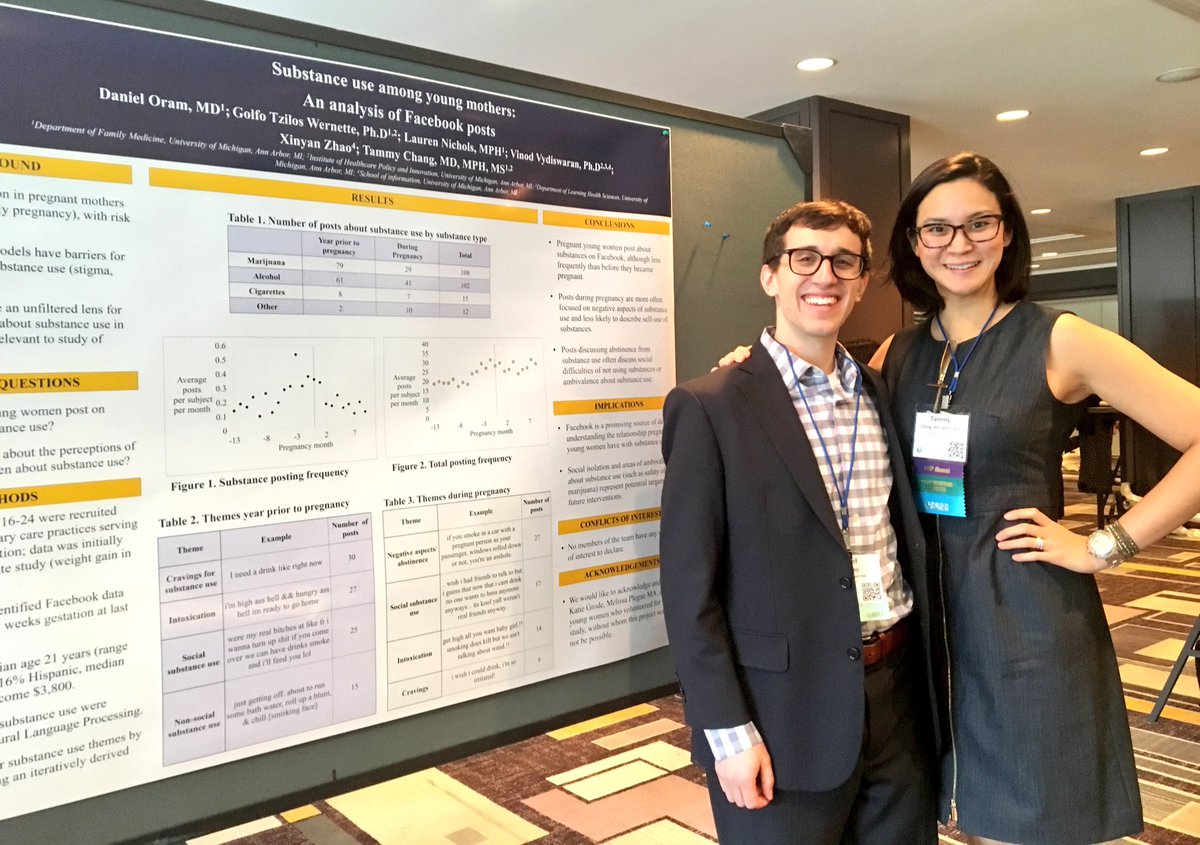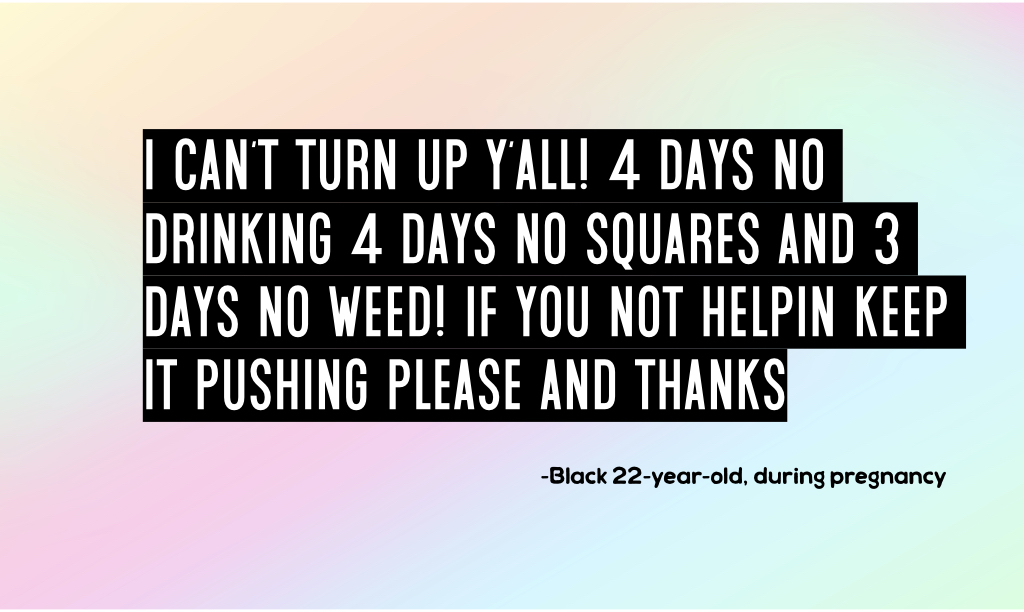The American College of Obstetricians and Gynecologists (ACOG) has recommended routine screening and brief interventions for substance use during pregnancy. Primary care physicians offer screenings, health information and recommendations on how to quit or reduce consumption of alcohol, drugs and tobacco. Pregnant women, especially adolescent pregnant women, face a host of environmental and social obstacles that may counteract the interventions happening in the exam room.
Adolescent pregnancy researcher Tammy Chang, M.S., M.P.H., assistant professor, and her research team took a new approach to understanding young moms’ real-life experiences with substance use before and during pregnancy. To go beyond the exam room, researchers devised a way to use consented social media data to provide insights into young women’s real perceptions of substance use.
The study recruited 43 pregnant adolescent women who were patients at two primary care clinics in the Midwest that serve primarily low-income individuals. All participants were in the 16-24 age group. All participants consented to have their Facebook profile posts extracted at two distinct points, once in the first trimester and again in their approximately third trimester.

Researchers then analyzed the text of the extracted social media activity. Analysis was led by Daniel S. Oram, M.D.,third-year resident in the Department of Family Medicine, with the goal of characterizing the frequency and content of posts regarding substance use in the year before pregnancy and during pregnancy.
The results, “Substance Use Among Young Mothers: An Analysis of Facebook Posts,” were published in JMIR Pediatrics and Parenting.
The authors note that “clinicians should acknowledge the role of substance use in the lives of youth and find ways to ensure these young women are supported and empowered to make healthy decisions during pregnancy.”
Social media shifts
Their analysis found that a majority of the women in the study discussed use of alcohol, tobacco, marijuana, and other illicit drugs via Facebook, with 70% of participants posting about substances before their pregnancies and 56% posting during. While the frequency of Facebook posts before and during pregnancy showed no decline, there was a decline in the frequency of posts that discussed substances and substance use after the date on which participants found out that they were pregnant.
It was not only the frequency of posts that changed, but also an observed shift in the tone and themes expressed in the substance-related posts after participants discovered they were pregnant. Prior to pregnancy, substance-related posts primarily focused on use or anticipated use of substances, and referred to substances in a positive or neutral tone—describing their craving for substances and substance use as a bonding social activity and as a form of self care.

In the period marked as after participants discovered they were pregnant, posts were more likely to take on a negative tone, discussing the negative aspects of substances and substance use and their choice to abstain.
Interestingly, participants recognized the social consequences of abstaining from drugs and alcohol. The negative tone often marked the social isolation associated with abstinence during pregnancy.

The young women often discussed substance use in ways that highlighted the need for continued interventions to support their abstinence from substances during pregnancy. This finding is similar to a prior qualitative study of Australian women who identified social alcohol consumption as motivation for continued use throughout pregnancy.
Furthermore, although the participants appeared to have knowledge about the need to abstain from substance use during pregnancy, they often expressed some ambivalence about the need to avoid all substances at all times, particularly marijuana.

SEE ALSO: New research examines health advice given by friends and family to pregnant women
From digital sharing to clinical practice
Based on the analysis, the researchers say that primary care providers should anticipate young pregnant women are using alcohol, tobacco and particularly marijuana during their pregnancies and understand that substance use by these women is closely related to social interaction and support. The primary caregiver should be prepared to acknowledge the potential loss of social interaction and support their patients may lose, when they choose to abstain from substance use.
This analysis is a component of Chang's three-year NIH K23 grant-funded project "Speaking Their Language: Using Social Media And Texting To Create An Adolescent-centered Approach To Healthy Weight Gain During Pregnancy." Oram led the analysis as part of his resident research project, with mentorship from Chang and Golfo Tzilos Wernette, Ph.D., assistant professor. Oram presented the results in a session at the North American Primary Care Research Group annual conference in 2017.
Article Citation: Oram D, Tzilos Wernette G, Nichols LP, Vydiswaran VV, Zhao X, Chang T. Substance Use Among Young Mothers: An Analysis of Facebook Posts. JMIR Pediatrics and Parenting. Vol. 1(2):e10261. 2018. DOI: 10.2196/10261
Browse the latest research on reproductive and women's health from the department of family medicine.




